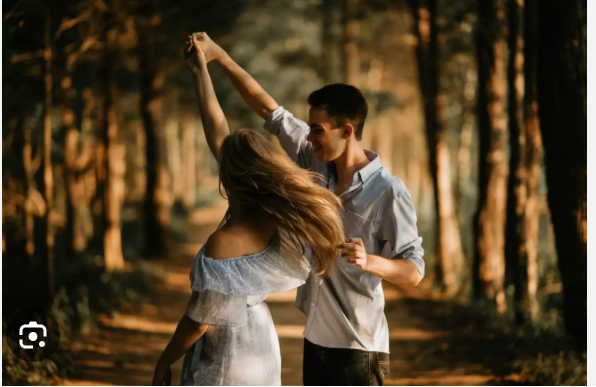Modern Dating: Why Finding Love Feels Harder Than Ever

Romance used to follow predictable patterns. You'd meet someone through friends, work, or chance encounters at coffee shops. Courtship moved at a steady pace, with clear milestones marking relationship progress. But today's dating landscape looks entirely different, leaving many people feeling overwhelmed and disconnected despite having more options than previous generations could imagine.
The shift toward digital connections has fundamentally altered how we approach relationships. While technology promises to solve the problem of meeting compatible partners, it has created new challenges that make genuine connection feel increasingly elusive.
The Paradox of Choice in Modern Romance
Dating apps offer access to thousands of potential matches within a few miles of your location. This abundance seems like a blessing, but research suggests it often becomes a curse. When faced with endless options, many daters develop what psychologists call "choice overload"—a paralysis that prevents meaningful decision-making.
The phenomenon manifests in several ways. People spend hours swiping through profiles without initiating conversations. Those who do connect often maintain multiple casual relationships simultaneously, avoiding commitment because they fear missing out on someone "better." This constant comparison shopping mentality undermines the patience and focus needed to build deeper bonds.
Furthermore, the gamification of dating through app interfaces triggers dopamine responses similar to those found in gambling. The intermittent reinforcement of matches and messages creates addictive patterns that keep users scrolling rather than engaging authentically with potential partners.
Digital Communication's Impact on Intimacy
Text-based communication dominates early relationship stages, replacing face-to-face conversations that once allowed people to gauge chemistry and compatibility. While messaging offers convenience and reduces social anxiety for some, it also strips away crucial nonverbal cues that facilitate emotional connection.
Misunderstandings multiply when tone, facial expressions, and body language disappear from interactions. People craft carefully curated versions of themselves through photos and messages, creating unrealistic expectations that real-life encounters struggle to meet. The result is often disappointment and a sense that authentic connection remains just out of reach.
Video calls have become more common since the pandemic, but they still lack the full sensory experience of in-person meetings. Subtle chemistry indicators—how someone moves through space, their natural scent, the energy they project—remain absent from digital interactions.
Social Media's Influence on Relationship Expectations
Instagram and TikTok flood feeds with highlight reels of picture-perfect relationships. Couples pose in exotic locations, celebrate elaborate anniversary gestures, and share romantic moments that appear effortless and magical. These curated glimpses create unrealistic standards that everyday relationships struggle to match.
Young adults especially feel pressure to document their romantic lives for social validation. The focus shifts from private connection to public performance, with couples feeling compelled to prove their happiness through posts and stories. This external pressure can strain relationships and prevent partners from addressing problems honestly.
Additionally, social media provides endless opportunities for comparison. Seeing ex-partners' new relationships or friends' romantic milestones can trigger feelings of inadequacy and FOMO that interfere with present relationship satisfaction.
Economic and Social Pressures
Financial stress affects modern dating in unprecedented ways. Rising costs of living mean many young adults delay traditional relationship milestones like moving in together or marriage. Student loan debt, housing prices, and economic uncertainty create practical barriers to relationship progression.
The gig economy and remote work arrangements also impact dating patterns. Irregular schedules and location flexibility offer freedom but can complicate coordination and commitment. Career mobility that previous generations didn't experience makes long-term planning more challenging.
Social expectations have evolved as well. People feel pressure to establish individual identity and career success before settling down, extending the single phase of life. While this creates opportunities for personal growth, it can also lead to analysis paralysis when choosing life partners.
Building Meaningful Connections Despite the Challenges
Successful modern daters often adopt strategies that counteract digital dating's pitfalls. They limit their active dating app usage, focusing on a few quality conversations rather than maintaining dozens of superficial connections. Meeting in person quickly becomes a priority, allowing chemistry and compatibility assessment through all senses.
Setting boundaries around social media consumption helps maintain realistic relationship expectations. Some couples agree to keep their relationships more private, focusing on their connection rather than external validation.
Navigating Love in the Digital Age
Modern dating presents unique challenges, but understanding these obstacles empowers people to navigate them more effectively. Success often comes from recognizing when digital tools serve relationships versus when they hinder genuine connection. By approaching dating with intentionality and realistic expectations, meaningful partnerships remain achievable despite the complexity of contemporary romance.
The key lies in balancing technological convenience with authentic human interaction, using apps and social media as starting points rather than substitutes for real-world connection. Quality relationships still require the same fundamental elements they always have—patience, vulnerability, and genuine interest in another person's inner world.








